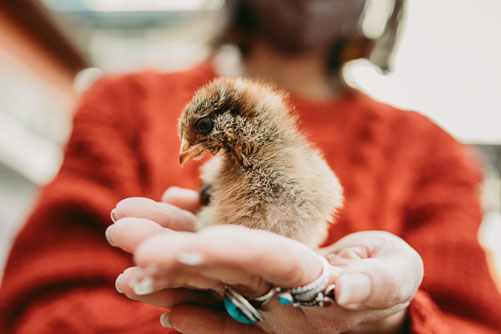
Birds and Mason Bees
Mason Bees
Mason bees are unique and quite beneficial. They’re native to the Pacific NW and, in contrast to honey bees (which are from Europe), mason bees will fly and pollinate even when it is raining or cool outside. They’re not hive-forming and rarely sting.
We carry mason bee cocoons that hatch in late winter ready to pollinate your plants through spring. We also carry mason bee boxes and tubes to provide them nesting spaces.
Attracting birds to the garden.
Having birds regularly visit your garden brings a lot of benefits. They pollinate our plants, prey on unwanted insects, and bring a sense of wildness to our outdoor spaces. It can be really rewarding to watch birds gather nest-making materials from our gardens in the winter.
The best way to attract birds to your garden is to provide proper habitat – plants for food and shelter, an exposed mulch/leaf layer, and water. Once you’ve created a supportive habitat, it’s time to add feeders and nesting boxes. We offer feeders, seed, and shelters.
We are proud to partner with the Backyard Bird Habitat certification program operated by Portland Audubon and Columbia Land Trust. We carry lots of plant options and provide discounts to participants in the program. We’re also recipients of the certification and highly recommend it!
Feed
We carry organic and conventional feed in both pellet and whole grain form, as well as grit, oyster shells, grubs and snacks. We also have all the feeders, waterers, heat lamps, bedding, and books you’ll need to get your flock started and cared for.
Care
Please check out our chicken resources below!
Breed Information Websites
Other Chicken Resources
Chicken Health Handbook
This book is an excellent reference and first place to start for non-emergency chicken health questions. We have a reference copy at the store and you are welcome to look at it at the store.
Chicken Vets and consultation- Who to call when there is a health crisis
Leslie with Flock City is our go to for consultation. She provides consultations by phone 503-832-7137 or email www.flockcitypdx@gmail.com. Leslie also provides home visits, help with minor procedures, hen companion services and lot of experienced recommendations.
Vet practices come and go. We suggest calling your local vet and seeing who they would recommend. That said, there is the Avian Medical Center off Boones Ferry in Lake Oswego and they may be able to help you or refer you to someone closer to you. Let’s hope you never have to make that call. Good luck!
